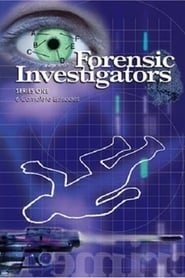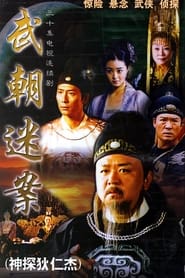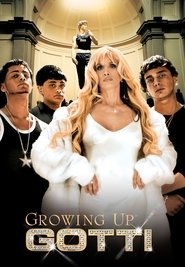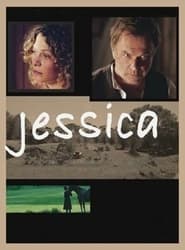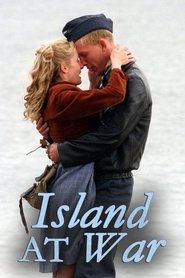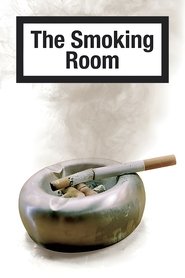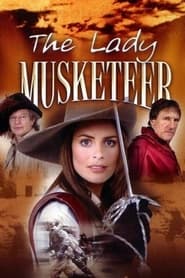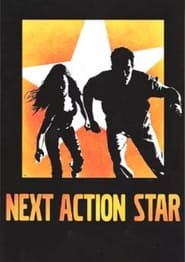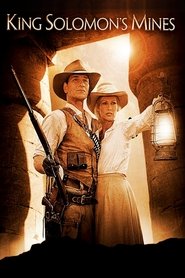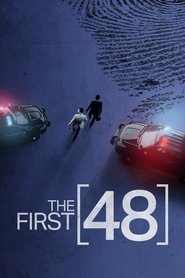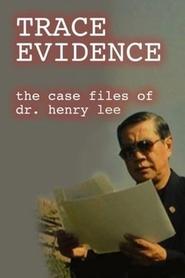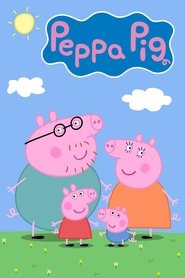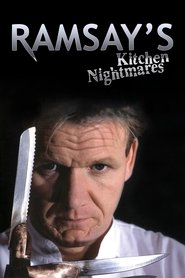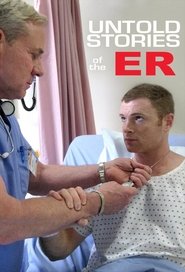New Reality TV Series on Amazon Prime Video - Page 186
-
Forensic Investigators
2004
Forensic Investigators: Australia's True Crimes is an Australian television show hosted by Lisa McCune which aired on the Seven Network. It aired from 2004 to 2006. Focusing on actual Australian crimes, each episode unfolds the drama minute-by-minute showing viewers the tireless work of detectives, and the scientific procedures required to solve these mysteries. The series includes exclusive footage that has never been seen outside the courtroom, including police videos, crime scene stills and other forensic evidence. Recently the 1st and 2nd seasons have been released on DVD. The third season featured a new time slot – Wednesday at 8:30 pm. It is not known when, or if the fourth season will begin airing. -
Amazing Detective Di Renjie
2004
star 9Di Renjie is Tang dynasty magistrate and statesman, who investigates mysterious murders. -
Growing Up Gotti
2004
Growing Up Gotti
2004
star 1Growing Up Gotti is an American reality television series that appeared on A&E. It featured the life of Victoria Gotti, daughter of Mafia boss John Gotti, and her three sons; Carmine Agnello, Jr., John Gotti Agnello, and Frank Gotti Agnello. -
M Countdown
2004
M Countdown
2004
star 2M Countdown, the World No.1 K-POP Chart Show, is broadcast in 13 countries worldwide, including Mnet USA and Japan. Featuring a dazzling lineup of K-Pop stars delivering charismatic performances, spectacular stages, and even online voting for active fan engagement! M Countdown announces the top 10 songs of the week as "MCD's Top 10" by combining weekly album and song sales, online music fan votes, and votes from a panel of music experts. Viewers can directly vote for the winner during the live broadcast, providing a glimpse of the latest K-Pop trends. Since its debut in 2004, M COUNTDOWN has aired over 800 episodes as of 2023. Experience the WORLD NO.1 K-POP Premium Chart Show leading the global K-Pop craze and music trends. -
Dr. G: Medical Examiner
2004
star 6.8Dr. G: Medical Examiner documents cases handled by deputy chief medical examiner Dr. Jan C. Garavaglia (aka Dr. G) of Florida's District Nine Medical Examiner's Office. Each episode features two or three cases Dr. G has handled in the Orlando area, and also in Bexar County, Texas and Jacksonville, Florida where she was previously employed. Some portions of the show have been dramatized and some names have been changed to protect the dignity of individuals and their families. -
Jessica
2004
Jessica
2004
star 4.8Set in the Australian outback at the turn of the twentieth century, this family based drama follows a young woman who is unjustly institutionalised. -
Stargate Atlantis
2004
Stargate Atlantis
2004
star 8With the Ancients' city of Atlantis discovered in the Pegasus Galaxy by Stargate Command, Dr. Elizabeth Weir and Major Sheppard lead a scientific expedition to the ancient abandoned city. Once there, the team not only find themselves unable to contact Earth, but their explorations unexpectedly reawaken the Ancients' deadly enemies, The Wraith, who hunger for this new prey. Now with the help of newfound local allies like Teyla Emmagan, the Atlantis Team sets about to uncover their new home's secrets even as their war of survival against the Wraith begins. -
Island at War
2004
Island at War
2004
star 7.7Island at War is a British television series that tells the story of the German Occupation of the Channel Islands. It primarily focuses on three local families: the upper class Dorrs, the middle class Mahys and the working class Jonases, and four German officers. The fictional island of St. Gregory serves as a stand-in for the real-life islands Jersey and Guernsey, and the story is compiled from the events on both islands. Produced by Granada Television in Manchester, Island at War had an estimated budget of £9,000,000 and was filmed on location in the Isle of Man from August 2003 to October 2003. When the series was shown in the UK, it appeared in six 70-minute episodes. -
The Smoking Room
2004
The Smoking Room
2004
star 8.1The Smoking Room is a British television sitcom written by Brian Dooley, who won a BAFTA for the series in 2005. The first series, consisting of eight episodes, was originally transmitted on BBC Three between 29 June and 17 August 2004. The Christmas Special was first transmitted on 20 December 2004. A second series of eight episodes began airing on 26 July 2005. The first series, including the Christmas Special, was released on DVD by the BBC on 6 February 2006 and on CD in a four-disc set on 4 April 2005. The second series was released on 16 October 2006; a boxed set containing both series was released on the same date. There will not be a third series; in an interview for the BBC News website on 30 November 2006, the actor Robert Webb who plays Robin, said in passing, "...there is no more Smoking Room". England's smoking ban, which prohibits indoor smoking in workplaces, came into force on 1 July 2007, as a result of which internal smoking rooms, like the one in which the series is set, became illegal. -
The Lady Musketeer
2004
The Lady Musketeer
2004
star 5.2When the bride-to-be of King Louis XIV is kidnapped, the sons of the original three musketeers rally to rescue her. Much to their surprise, a fourth musketeer joins the fray. And this brilliant swordsman—the most gifted of the lot—turns out to be D'Artagnan's daughter. -
Tech Effect
2004
-
Next Action Star
2004
Next Action Star
2004
Next Action Star is an American reality television program shown on NBC from June to July 2004. -
King Solomon's Mines
2004
King Solomon's Mines
2004
star 6.2Renowned safari hunter Allan Quatermain is lured back into the unknown recesses of the African jungles to find a man who disappeared while searching for the fabled King Solomon's Mines--a destination of legendary riches from which no soul has ever returned alive. -
The First 48
2004
The First 48
2004
star 7.9The First 48 follows detectives from around the country during these first critical hours as they race against time to find the suspect. Gritty and fast-paced, it takes viewers behind the scenes of real-life investigations with unprecedented access to crime scenes, autopsies, forensic processing, and interrogations. -
Peppa Pig
2004
Peppa Pig
2004
star 6.6Peppa Pig is an energetic piggy who lives with Mummy, Daddy, and little brother George. She loves to jump in mud puddles and make loud snorting noises. -
Ramsay's Kitchen Nightmares
2004
star 7.5Ramsay's Kitchen Nightmares is a television programme featuring British celebrity chef Gordon Ramsay. The BAFTA and Emmy Award-winning programme debuted on Channel 4 in 2004. In each episode, Ramsay visits a failing restaurant and acts as a troubleshooter to help improve the establishment in just one week. Ramsay revisits the restaurant a few months later to see how business has fared in his absence. Episodes from series one and two have been re-edited with additional new material as Ramsay's Kitchen Nightmares Revisited; they featured Ramsay checking up on restaurants a year or more after he attended to them. In October 2009 Ramsay announced that after his four-year contract expired in 2011 he would not continue with Kitchen Nightmares and would instead work on his other shows. -
Untold Stories of the ER
2004
star 8.2Doctors recount the most memorable cases they’ve ever encountered. Unusual, touching, humorous or life-changing – no story is too big or too small when it comes to the ER. -
Investigating History
2004
Using the latest techniques of forensic science, investigators re-explore some of the legendary figures and events of history in order to determine how much of what has come down to us is a true account. -
Peter Andre's 60 Minute Makeover
2004
Peter Andre's 60 Minute Makeover is a British popular daytime home interior design television programme broadcast on ITV in the United Kingdom, SBS6 in the Netherlands, and Vitaya in Flanders. It was first aired on 19 April 2004.
 Netflix
Netflix
 Amazon Prime Video
Amazon Prime Video
 Apple iTunes
Apple iTunes
 Apple TV Plus
Apple TV Plus
 Disney Plus
Disney Plus
 Google Play Movies
Google Play Movies
 Paramount Plus
Paramount Plus
 Hulu
Hulu
 HBO Max
HBO Max
 YouTube
YouTube
 fuboTV
fuboTV
 Peacock
Peacock
 Peacock Premium
Peacock Premium
 Amazon Video
Amazon Video
 The Roku Channel
The Roku Channel
 AMC+
AMC+
 Kocowa
Kocowa
 Hoopla
Hoopla
 The CW
The CW
 Vudu
Vudu
 Starz
Starz
 Showtime
Showtime
 PBS
PBS
 Pantaflix
Pantaflix
 FXNow
FXNow
 Tubi TV
Tubi TV
 Kanopy
Kanopy
 Comedy Central
Comedy Central
 Crunchyroll
Crunchyroll
 Microsoft Store
Microsoft Store
 Redbox
Redbox
 Sun Nxt
Sun Nxt
 ABC
ABC
 DIRECTV
DIRECTV
 Crackle
Crackle
 Fandor
Fandor
 Plex
Plex
